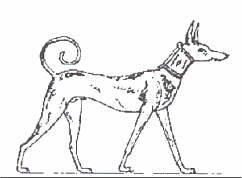I grew up on the swamps between the Tidewater and the Piedmont, and the office complex where I work is a stone’s throw from the home of my childhood. The land here is where my brother used to go exploring, coming home with odd treasures, from Civil War bullets to contemporary plastic casings, to that one partially skinned deer hide that one time. People have tried to prettify the term swamp by calling these wetlands, and as much as possible, man has chosen to landscape over the marshy ground and put it to “good use” as we like that term.
Fortunately, there are still a few members of mankind who protect what is necessary to us, and these swamps have not been overdeveloped in the past thirty years. There’s more than there was out here – and traffic is like nothing I imagined when I was a kid – but the swamps themselves continue, in places, unmolested.
To me, this is absolutely beautiful.
At my last job, which was near here but in a more landscaped/manmade part of the office park, we used to run to the windows like little kids – to watch the weather, to watch eagles fly, to catch a glimpse of deer or the fin of a carp, or the sight which still captivates me, the White Egret. It was a wonderful moment, here and there, getting to remember what it was like watching Wild Kingdom as little kids – but in our own backyard.
A bit down the road and off the landscaped path, my current building lies on a very low bluff over the swamp proper. No grass gets mowed outside our windows, the land just drops off after a couple of yards or so out from the building, and it’s bare trees and patches water and dead leaves and squirrels’ nests.
Again – to me, absolute loveliness. Even now, in winter, the colors muted and the sky drear with leftover snow and rain, the untouched sight (or, at least, if we must be honest and not call this “natural” – at least it is less-touched than almost anything else I can expect to see day-to-day) can be full of peace. And marvels, too.
This morning, we had snow, and it was a frost-swept wonderland out there. When I got out of my car, in a corporate parking lot, the air was still and sound muffled, just like it always was when it snowed when I was growing up. Impossible not to think of that time my dad and I walked to my grandmother’s apartment in the snow, and shared fresh-baked cinnamon rolls with her, just the three of us. And walking home, dad telling me how snow used to be so cold in his smalltown home in the Midwest, that it crunched, dry, beneath your feet. Impossible not to remember the time I found a bright feather on the packed snow of our street, on my birthday – a feather, I have to believe, I still have pressed somewhere in an old diary, journal, or book.
Yesterday, the evocative veils and whorls of thick fog. Not an all-encompassing sky full of mist, but clearly delineated piles of it, walls of it beside the roadways, clinging in the trees, rolling down the gulleys behind the building. Wondrously pretty.
The swamps make me pause, make me slow down even when I am busy commuting, and take in the odd dead trunk or bed of cattails, the breadth of space not overtaken by *buildings*, the way the light plays in spaces I’ve known all my life – the way, sometimes, it doesn’t, and how that is lovely too. These quiet spaces lurk, peace between a drugstore and that service station dad used to walk home from after dropping off the car; places where kids explore and find treasures, where birds eat and ignore us and go on about the business of life, which is older – and will outlast (that blessing, that marvelousness) every strip mall and drive-through we erect to sustain our silliness. There is peace between those townhouses, built in the 1950s or 60s, and the slender grey stalks of trees, of those grown and died since I grew up here myself, of those still coming up, of those dead now and quietly standing, still.
Every day of my job, I come home in a unique way – some days, I feel it powerfully. Summer, the windows open, a song on the radio which might have played when I was a teenager, the quality of light JUST as it simply *is* in this town, in this place, in this world, which can’t change the way it plays. I drive home eastward, past places I have known in one hundred different ways, and I’m grateful I get to live in this place that *feels* like home. In this place that doesn’t reject me, nor change against me, nor spit out its own past like so much disposable trash.
There’s some past around here we must regret, but to do that we must remember it too.
When I was very small indeed, there was this one long road nearby – which went, one way, out to the country where we drove to see my family – and, the other way, into the city where we drove when shopping or some sort of event demanded it. I conceived an idea that this road, this long, straight byway into the country, into the city, rising and falling over hills but rarely bending, was the route to the past, or to the future. In the West was the past. Go far enough beyond the country I knew, past the farms where the red clay lived, where the old grey wood house was, in which my mother was born – far enough, so far as to be inconceivable, where the big red sun set – that was where Jesus lived, where olden times were, where the Revolutionary people and Civil War people were. Go east – the direction we rarely took to speak of, at least beyond a particular hill – that was the future.
I can still remember when I found out that road – that road that never ended, that went so far it encompassed time itself, had an endpoint in the east.
Where it terminates in the west … I still have never traveled there.
And, to this day, when I drive out of my mid-century, Norman Rockwell neighborhood, coming west on that road, I come every day to my own past, and don’t proceed beyond the land I knew, the land I crawled on, growing up.
And, every night … I drive home. Eastward. Toward the future. Leaving the swamps behind … but only for a little while. They’ll be there. They’ll be there tomorrow. And I’ll be back again. I’ll never forget. And I’ll never stop loving the patches, the creeks, the dead trees and cattails. And the miracle of the birds I still get so excited to watch and wonder at.






